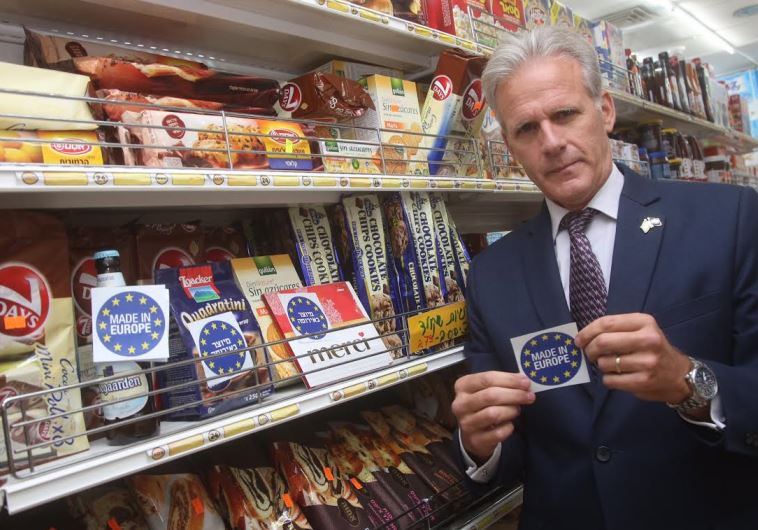Jerusalem Post Editorial: Immoral labels
This week sources in Jerusalem said they had received signals the Europeans would soon make good on this threat – possibly within days.
 MK Michael Oren with Made in Europe sticker(photo credit: MARC ISRAEL SELLEM)
MK Michael Oren with Made in Europe sticker(photo credit: MARC ISRAEL SELLEM)